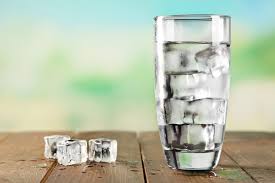By Milcah Tanimu
Many people enjoy cold water, especially after a meal, because it feels refreshing. However, drinking cold water immediately after eating can actually harm your body in several ways. While it’s not necessary to avoid cold water altogether, knowing when to drink it is key for better health.
Here are a few reasons why drinking cold water after a meal could be harmful:
- Cold Water Slows Digestion
Drinking cold water after eating can slow down digestion. Cold temperatures cause the fats in food to solidify, making them harder to break down. This forces your digestive system to work harder, potentially leading to bloating, indigestion, or discomfort. Room-temperature or warm water helps digestion move smoothly. - Cold Water Can Cause Stomach Cramps
For some people, cold water can lead to stomach cramps, especially after a meal. When cold water enters the stomach, it can shock the system and cause the stomach muscles to contract. This can be painful or uncomfortable, particularly for those with sensitive digestion or conditions like IBS. - Cold Water May Lead to Mucus Buildup
Cold water can thicken mucus in the respiratory system. After a meal, it may trigger the body to produce more mucus to regulate the temperature. This can lead to congestion or a blocked nose, especially for those with respiratory issues. Warm water can help clear mucus and keep the system functioning well. - Cold Water Can Cause Bloating
Cold water can slow the movement of food through the digestive system, leading to bloating and discomfort. Additionally, your body uses extra energy to warm the cold water to body temperature, which can leave you feeling sluggish. To avoid bloating, it’s better to drink room-temperature water after a meal.





